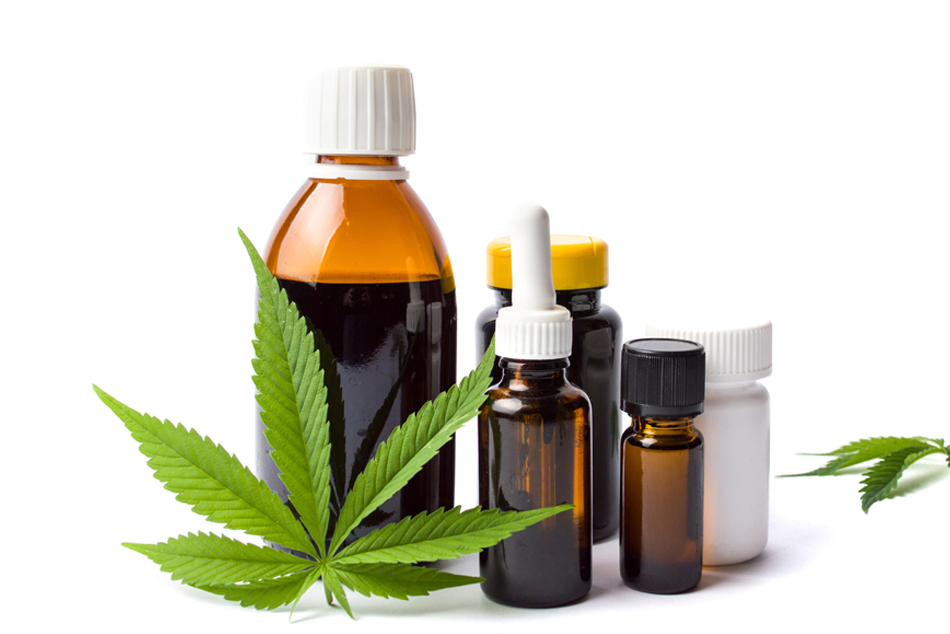
Five Helpful Things for Employees to Know About CBD Products
(December 2019) You are probably hearing and seeing a lot about cannabidiol (CBD) products. From signs in store windows and grocery store displays to ads on social media, CBD is being touted as a remedy for numerous physical and mental health conditions.
As with most hot topics, not only is there a lot of conversation about CBD, but there is also a lot of confusion around it. Beyond understanding what CBD is, it’s important for people who are considering purchasing these products to know some basics – including some that are pertinent to the workplace. There is a myriad of questions around CBD and products containing CBD. But let’s focus on these five basics:
1. Technically, CBD is legal.
Stuck on that word, “technically?” You should be! The passage of the 2018 Federal Farm Bill paved the way for CBD to be extracted from hemp (a plant, like marijuana, in the cannabis family). However, CBD can also be found in marijuana. This means that where CBD comes from matters. Additionally, the Farm Bill gives states the authority to regulate hemp and hemp-derived products (including those containing CBD) which could result in some conflict between what state and federal law says is legal.
2. There aren’t many proven benefits of CBD products.
Except for one prescription medication approved to treat severe forms of childhood epilepsy (i.e., Epidiolex®), the Food and Drug Administration (FDA) is still studying and weighing the risks and benefits of CBD products. This means that claims made about the benefits of food, lotions, supplements, makeup and even pet products containing CBD should be considered with skepticism as they have not been substantiated by the FDA. In fact, noting several safety-related concerns, the FDA has been sending warning letters to companies illegally marketing CBD products for therapeutic uses.
3. Product labeling may not accurately identify all ingredients (including THC).
The lack of FDA regulations is problematic when it comes to knowing how much THC is contained in a CBD product. (Remember, THC is the chemical that can cause a “high” and trigger a positive drug test). Without FDA oversight, there are no assurances about how a CBD product is processed, how it’s packaged or how it’s labeled. This means, when purchasing CBD products, it’s hard to be sure what’s in it, how pure it is, or if it contains high levels of THC or known contaminants (e.g., pesticides or heavy metals).
In fact, a Penn State University study found that seven out of 10 CBD products sold online were either over or under labeled, and Ellipse Analytics tested the top-selling 240 products and found 70% of them contained heavy metals, pesticides and toxic molds. Individuals planning to buy these products need to beware and to do their research to ensure they can trust the product being purchased.
4. There are differences between CBD products sold in retail stores and those sold in medical marijuana dispensaries.
Because of state regulations, CBD products sold in dispensaries are typically tracked from seed to store and tested to confirm purity and contents – including the levels of CBD and THC. Keep in mind, though, that depending on the state, consumers may need to get a formal recommendation from a qualified medical professional in order to purchase anything from a dispensary.
5. It’s important to know any workplace rules or expectations regarding their use of CBD products.
With all the uncertainty around CBD products, it’s important to understand what your company’s drug-free policy says (or doesn’t say) about the use of CBD products. For example, how will the employer respond if an employee uses a mislabeled product (i.e., one that contains illegally high levels of THC) and tests positive on a workplace drug test?
It bears saying, and is hopefully evident from the items above, that it’s difficult to discuss CBD and CBD products in black and white terms – instead, it’s a whole lot of gray. Therefore, it’s important to check things out before purchasing and/or using a CBD product. Research what your state laws say about CBD. Research the stores, producers and brands selling CBD so, if you choose to, you can make an informed purchase. Research what expectations your workplace has regarding CBD. The more you know about CBD products, the better you can protect yourself from unintended consequences if you choose to use them.
For employees and employers who want more information about CBD and how it can impact the workplace, Working Partners® has released a new course that can help. Sorting out the Confusion Around CBD is a 22-minute, OnDemand course designed to provide learners with a baseline understanding of CBD and answer frequently asked questions such as, “Is CBD safe?” and “Will CBD show up on a drug test?”